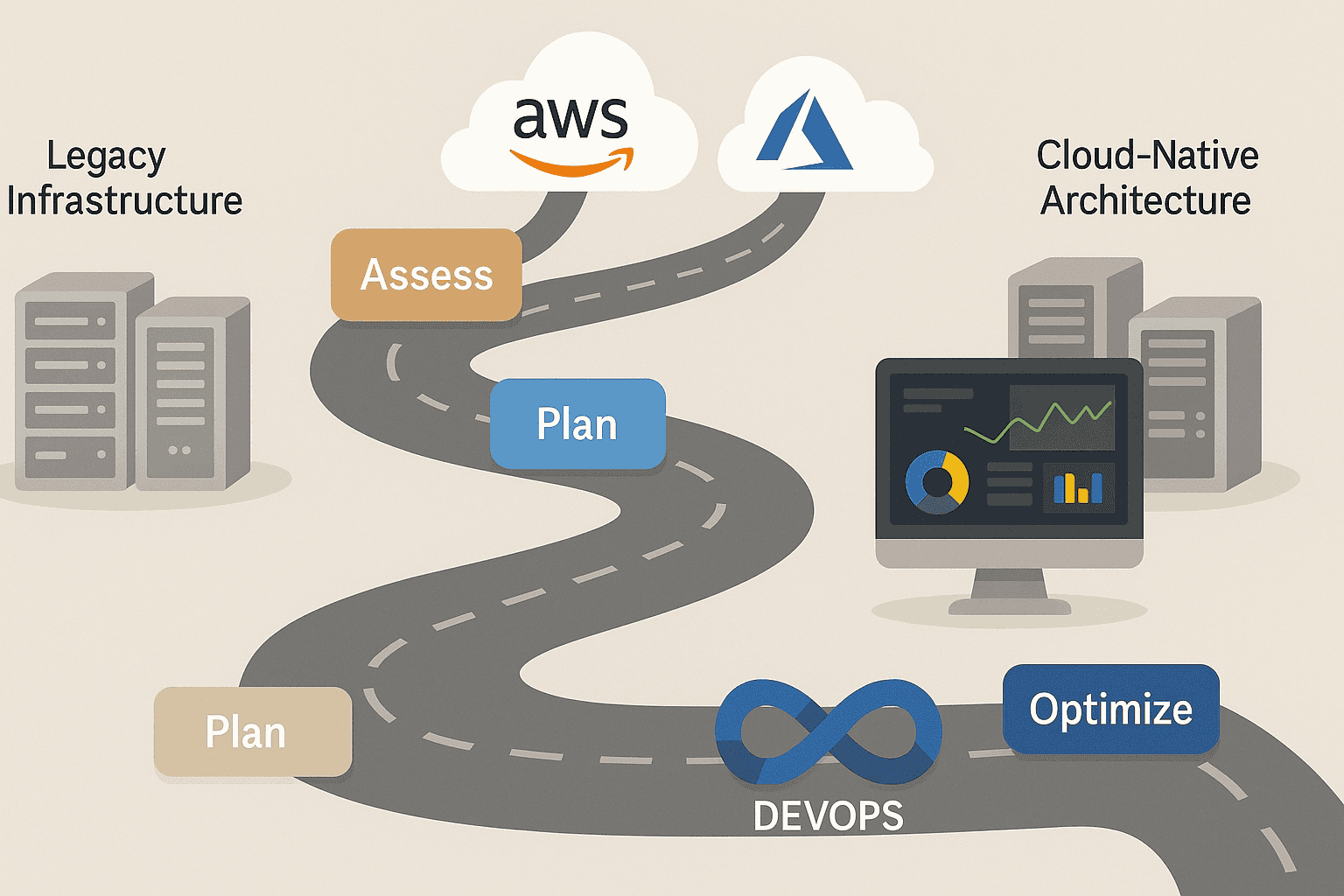Enterprise Cloud Migration Strategy (2025): Roadmap, Pitfalls, and Lessons from the Field

Cloud migration isn’t just a trend—it’s a foundational move for organizations seeking agility, scale, and resilience. In this practical guide by TrelleTech, we break down a strategic roadmap to help enterprises navigate their transition to the cloud with confidence. If you’re modernizing legacy systems or building a scalable DevOps environment in the cloud, you’ll find proven frameworks and hard-earned lessons here.
1. Building a Cloud Migration Roadmap
Success starts with a clear strategy. A well-defined roadmap helps avoid delays, cost overruns, and integration issues. Let’s walk through the key phases.
1.1 Assess Cloud Readiness
Begin with a full inventory of workloads and dependencies. Classify applications by business value, technical complexity, and integration points. Identify “low-hanging fruit” that can deliver early wins.
1.2 Align on Business Outcomes
Define KPIs that reflect business priorities: reduce TCO, improve scalability, enhance security. Don’t fall into the trap of treating migration as a technical exercise. Business alignment is critical.
1.3 Select the Right Migration Approach
Use the 6 Rs model to guide your migration strategy:
- Rehost: Move applications with minimal changes (lift-and-shift).
- Refactor: Adapt apps for cloud-native capabilities.
- Revise: Make lightweight architectural updates.
- Rebuild: Redesign for performance or scalability.
- Replace: Use SaaS alternatives for existing tools.
- Retire: Eliminate outdated or redundant systems.
2. Common Migration Challenges to Avoid
Many cloud migrations run into trouble due to technical debt, poor planning, or team misalignment. Here are some patterns to watch for:
2.1 Integration and Latency Issues
Legacy systems often have hidden interdependencies. If not accounted for, data transfers and cutovers can introduce latency or downtime. Use phased approaches and test thoroughly before each stage.
2.2 Misconfigured Security and Compliance Gaps
Inconsistent IAM policies, missing encryption, and lack of audit logs are common. Use Infrastructure as Code and Security-as-Code practices to enforce standards automatically from the start.
2.3 Change Resistance and Skill Gaps
Successful migrations require collaboration across DevOps, Security, and Finance. Invest in training, communicate clearly, and create internal advocates to drive adoption.
Need help strengthening your engineering culture? Explore our DevOps Essentials Guide.
3. What We’ve Learned from Real-World Projects
- Run pilots first: Prove business value early and build stakeholder trust.
- Tag resources from day one: It’s essential for cost tracking, automation, and security.
- Plan for hybrid operations: Expect to run legacy and cloud systems in parallel for a while.
- Instrument early: Use APM and FinOps tools as early as possible to validate impact.
4. Post-Migration Optimization: Getting Real Value
The end of migration is just the beginning. Continuous optimization is where the long-term gains happen.
- Enable autoscaling and right-sizing to control costs.
- Deploy observability tools for visibility into app performance.
- Adopt containers and serverless where it makes sense.
- Use ML to fine-tune workloads and predict resource needs.
Next Step: Let TrelleTech Help You Migrate with Confidence
Our team at TrelleTech works with CTOs and engineering leads to plan and execute cloud migrations that deliver measurable results. Whether you need a migration roadmap, DevSecOps automation, or full transformation support, we can help.
Related Articles:
– Mastering DevOps Essentials
– Visit TrelleTech Home
Categories: Cloud Migration, DevOps, Enterprise Architecture, Cloud Strategy
Tags: cloud migration strategy, enterprise cloud, devops modernization, infrastructure as code, digital transformation, aws migration, cloud security, trelletech